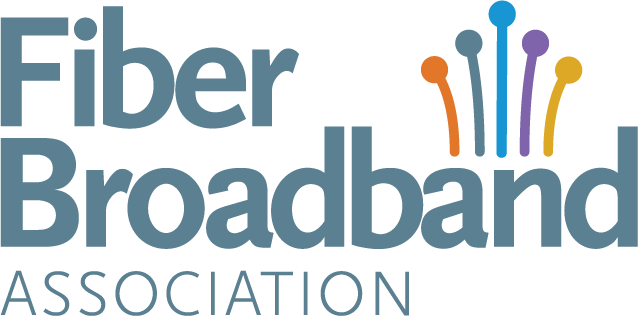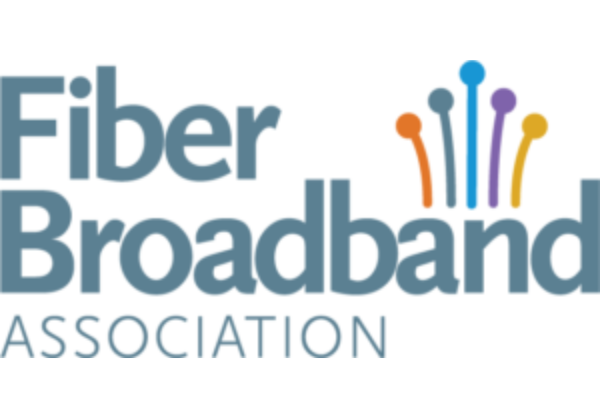Fiber Broadband Association Provides Update on the Status of Broadband in the U.S.
WASHINGTON, D.C.—(August 23, 2022)—The Fiber Broadband Association today released a new study, authored by RVA LLC Market Research & Consulting (RVA), entitled “A Detailed Review: The Status of U.S. Broadband and The Impact of Fiber Broadband.” This comprehensive annual report highlights five key areas of impact: Digital Equity, Performance, Sustainability, Economic Impact, and Quality of Life/Personal Productivity. These key highlights illustrate why the U.S. has begun the largest fiber broadband investment cycle in history. Nearly $130 billion in federal, state, and local subsidies are being invested from the Consolidated Appropriations Act, the American Rescue Plan Act, the FCC’s Rural Digital Opportunity Fund, the Coronavirus Capital Projects Fund, the NTIA, the USDA’s Rural Utilities Service ReConnect loan and grant program, and most recently the Infrastructure Investment and Jobs Act (IIJA).
“This investment in fiber as the critical broadband infrastructure for the nation’s future will further accelerate innovation and the next phase of the internet – the Metaverse,” said Gary Bolton, President and CEO at the Fiber Broadband Association. “As every American becomes connected with future-proof fiber broadband, consumers and businesses will begin to leverage the amazing future that is in store for all of us as digital equity reaches everyone, regardless of where they live.”
Highlights from the study include:
Digital Equity
Lowest density zip codes have service levels with 1/3 the bandwidth of high-density areas
58% of broadband adopters in the past 4 years are low income
37% of broadband adopters in the past 4 years are non-white households
Performance
Fiber has 45% faster download and 4.7x faster upload speeds than cable
Fiber has reduced the cost per bit by 90% over the past decade
Fiber has half the latency of cable
Fiber providers’ Net Promoter Scores are significantly better
Sustainability
Fiber delivers 20% more carbon savings than DSL and 40% more than cable HFC
Overall, fiber shows the highest net reduction in carbon based on transmission itself and the impact of enabling work from home
Economic Impact
47% of rural moves are to areas with fiber
Over $78 million per year of additional primary revenue from home-based businesses could be gained from an FTTH community of 100,000 households
Quality of Life / Personal Productivity
72% of consumers rank broadband as very important
Broadband is a Top Three attribute for selecting a community (in addition to safe streets / low crime and affordable living)
Homes with fiber have better access to healthcare and education
This study is one of the longest running and most comprehensive U.S. consumer internet research studies in existence. It is primarily built on RVA consumer research which has been annually sponsored by the Fiber Broadband Association since 2006. RVA consumer studies focusing on U.S. (and Canadian) internet use have been conducted each year among online consumers with sample sizes ranging from 2,000 – 4,500. The 2022 edition, conducted in March, has a sample size of 3,000.
Mike Render, Founder and CEO of RVA, will present findings from the 2022 study on an episode of Fiber for Breakfast on August 31, 2022, at 10:00am EDT. Additional presenters during the episode include Deborah Kish, Vice President of Research and Workforce Development at the Fiber Broadband Association, and John George, Senior Director of Solutions and Professional Services and OFS and Chair of the Fiber Broadband Association’s Technology Committee. To register, visit the Fiber for Breakfast page here.
About the Fiber Broadband Association
The Fiber Broadband Association is the largest and only trade association that represents the complete fiber ecosystem of service providers, manufacturers, industry experts, and deployment specialists dedicated to the advancement of fiber broadband deployment and the pursuit of a world where communications are limitless, advancing quality of life and digital equity anywhere and everywhere. The Fiber Broadband Association helps providers, communities, and policy makers make informed decisions about how, where, and why to build better fiber broadband networks. Since 2001, these companies, organizations, and members have worked with communities and consumers in mind to build the critical infrastructure that provides the economic and societal benefits that only fiber can deliver. The Fiber Broadband Association is part of the Fibre Council Global Alliance, which is a platform of six global FTTH Councils in North America, LATAM, Europe, MEA, APAC, and South Africa. Learn more at fiberbroadband.org.



